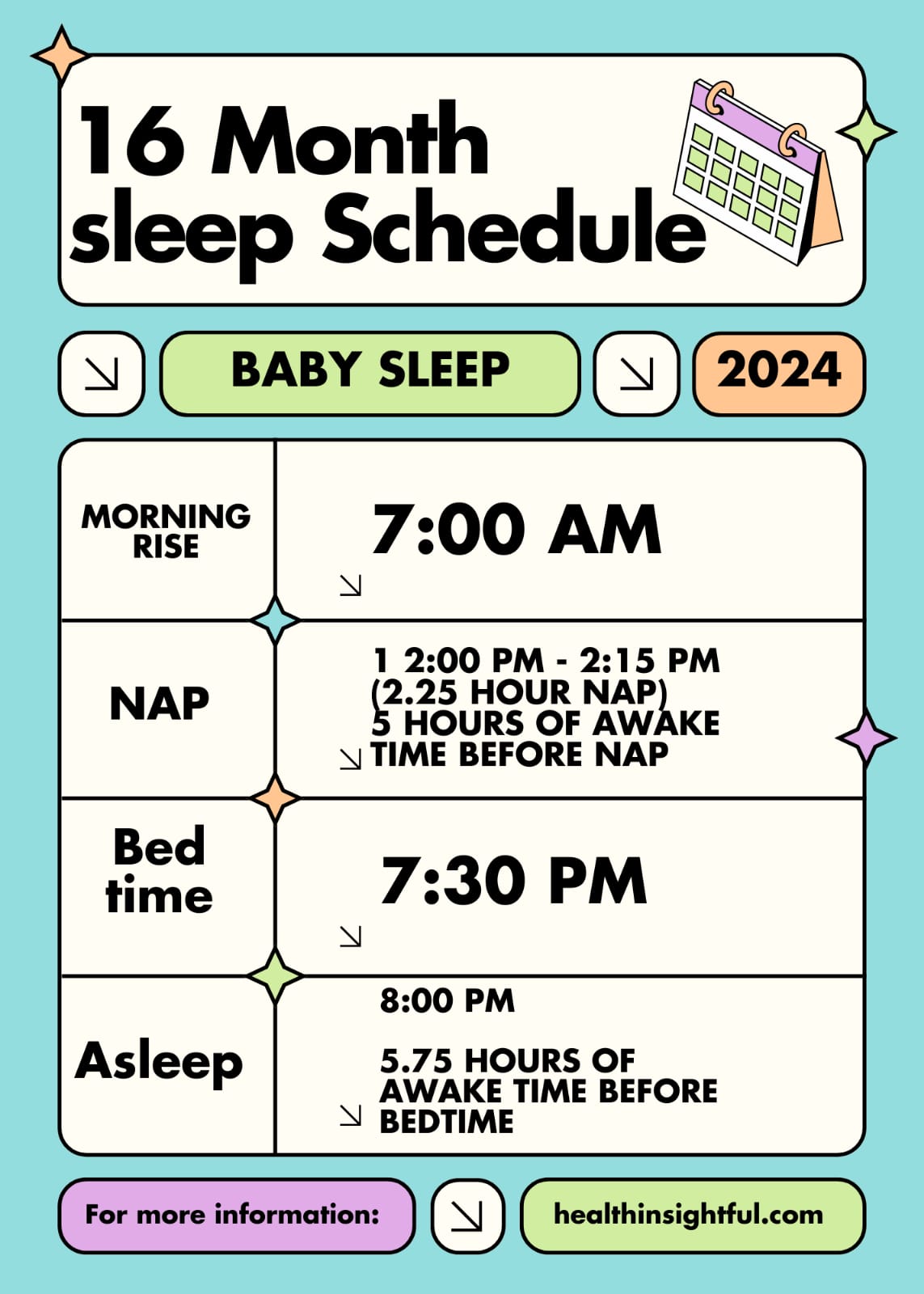Intro
As your baby grows, the patterns of sleep, and the need for sleep, change. It’s important to develop a sleep schedule that matches up with your baby’s stage in development so that they get the rest they need, and you get some much-needed predictability in your life. Here are some sample sleep schedules for babies between 3-6 months, 6-9 months, and onward, to show you how to adjust as your baby goes through these important developmental stages.
3-6 Months: Sleeping Less Erratically
From 3 to 6 months, this is where your baby starts to pack sleep into the night and falls asleep for longer periods of time at night; thus, daytime naps become more predictable. Now is the better time to get into a regular sleep routine.
Sample Sleep Schedule for 3-6 Months
- 7:00 AM: Up and morning feeding.
- 8:30 AM – 10:00 AM: Morning nap.
- 10:00 AM: Up and playtime.
- 11:30 AM – 1:00 PM: Late morning nap (in own bed).
- 1:00 PM: Wake.
- lunchtime feed 2:30 PM – 4:00 PM: Afternoon nap .
- 4:00 PM: Wake. playtime.
- 5:30 PM – 6:00 PM: Short late afternoon nap if still needed (at this age, this might drop).
- 6:00 PM: Wake, dinner feed, evening routine.
- 7:00 PM: Start bedtime routine (bath, book, etc.)
- 7:30 PM: Bedtime Overnight: One or two night feeds depending on baby’s needs .
General Tips for This Age
Encourage self-soothing. This is a fine time to start putting your baby to the crib fussy and awake, but sleepy, so they can learn to fall asleep with the absence of their parents.
Take cue from the baby and adjust. Every baby is different. Some will still need more frequent naps, while others may begin to drop the late afternoon nap.
6-9 Months: Daytime Sleep Consolidation
From 6 to 9 months, your baby’s sleep will further evolve. Many babies will drop from three naps a day to two, and nighttime sleep becomes more consistent.
Sample Sleep Schedule for 6-9 Months
- 7:00 AM: Wake up and morning feeding.
- 9:00 AM – 10:30 AM: Morning nap.
- 10:30 AM: Wake up and playtime.
- 12:30 PM – 2:00 PM: Afternoon nap.
- 2:00 PM: Wake up and lunch feeding.
- 4:00 PM – 4:30 PM: Light late afternoon nap (can be dropped at the end of this month).
- 4:30 PM: Up and Playtime.
- 6:00 PM: Dinner feeding with evening playing.
- 7:00 PM: Start bedtime routine (bath, book, etc.)
- 7:30 PM: Bedtime.
- Overnights: Still allow one nighttime feeding if needed
General Tips for this Month
Give Up the Third Nap Gradually: If your baby resists the late afternoon nap, then that is a very good time to move forward with just two naps. This helps consolidate nighttime sleep.
Be Consistent: A routine can provide cues to your baby when it’s time for them to sleep or nap, which will help them learn to fall asleep more easily.
9-12 Months and Beyond: Dropping Morning or Early Afternoon Nap
By the time your baby is approaching his first birthday, he is probably going from two naps a day down to one. Nighttime sleep will also tend to be less interrupted as most babies begin sleeping through the night without a feeding.
Sample Sleep Schedule for 9-12 Months
- 7:00 AM: Wake up and morning feeding.
- 9:30 AM – 11:00 AM: Morning nap.
- 11:00 AM: Wake up and playtime.
- 1:30 PM – 3:00 PM: Afternoon nap.
- 3:00 PM: Wake and snack.
- 6:00 PM: Dinner feed and evening routine.
- 7:00 PM: Bedtime routine (bath, story, etc.)
- 7:30 PM: Bedtime
Helpful Tips for This Phase:
- Transition to One Nap: Around the 12-month mark, a baby will start fighting their morning nap. It’s an okay time to transition them by slowly pushing that morning nap later and later in increments until it becomes one midday nap.
- Bed Time Routine: Stick with a routine consistent with the bedtime, it just tells your baby that sleep time is soon to come .
Over 12 Months: The Development of Sleep Pattern in Toddlers
Your baby will likely develop some sort of sleep pattern once they turn into a toddler. That usually means one nap during the day and an extended period while sleeping during the night.
Sample Sleeping Pattern for 12 – 18 Months
- 7:00 AM: Awake and breakfast.
- 12:00 PM – 2:00 PM: Nap.
- 2:00 PM: Wake up and play.
- 6:00 PM: Dinner and evening routine.
- 7:00 PM: Sleeping routine including bath and reading.
- 7:30 PM: Sleep.
Some Useful Tips for the Age Group:
- Bedtime Schedule: Note, constant night time enables your child to sleep as his body requires for growth purposes.
- Transitions of Naps: If your toddler still resists nap time completely, you can try to make a change either in the time they nap or in shortening it to such a degree they are tired at the right bedtime hour.
Conclusion
By establishing this sleep schedule, which alters and changes to the changing needs of your baby, you will be assured of rest required for a baby at each stage of development. While these sample schedules may give you an idea, remember that each baby is different. Be flexible but be consistent, and you’ll find that sweet spot that will carry your little one into the world of well-rested toddlers and beyond.










